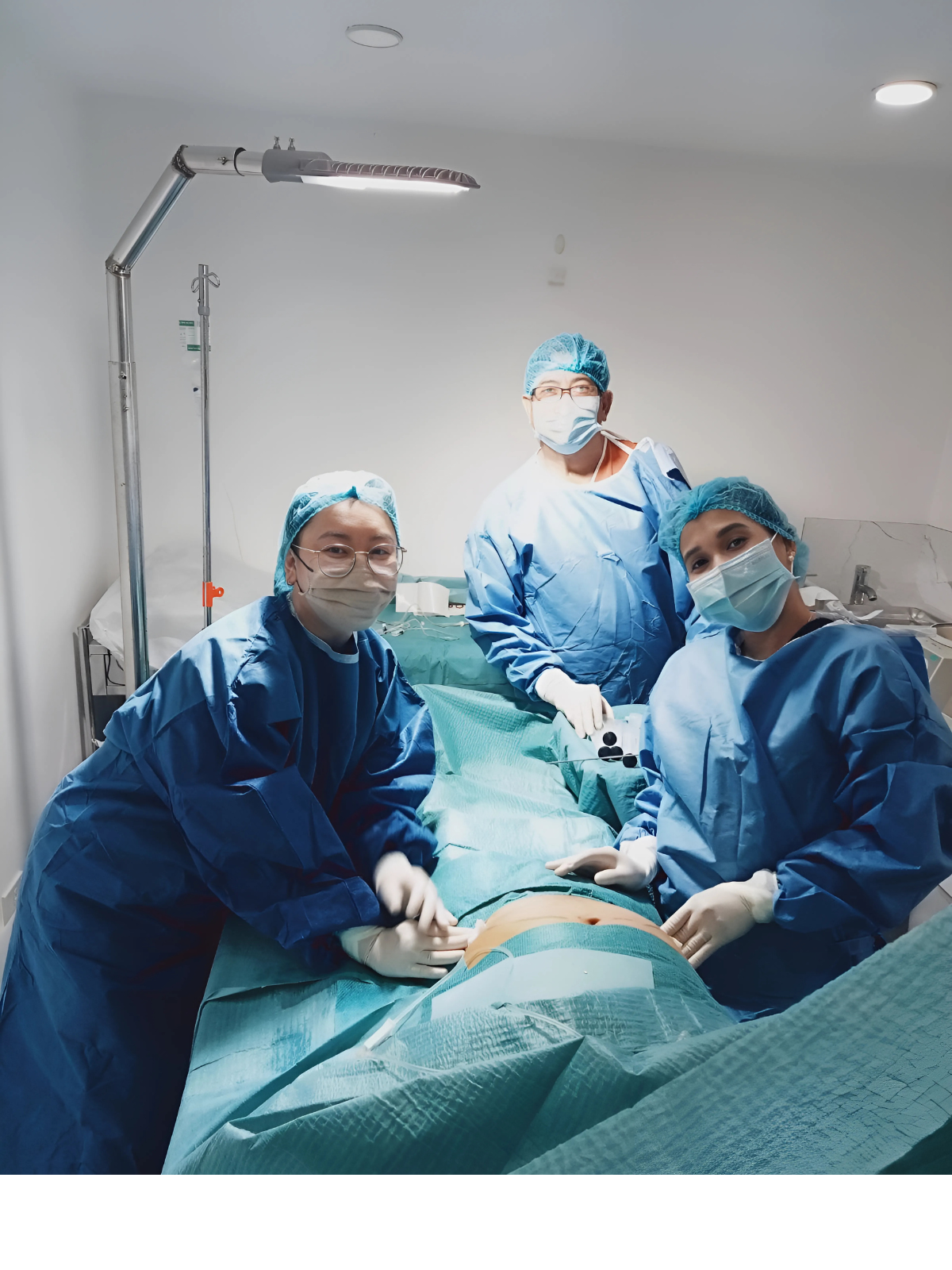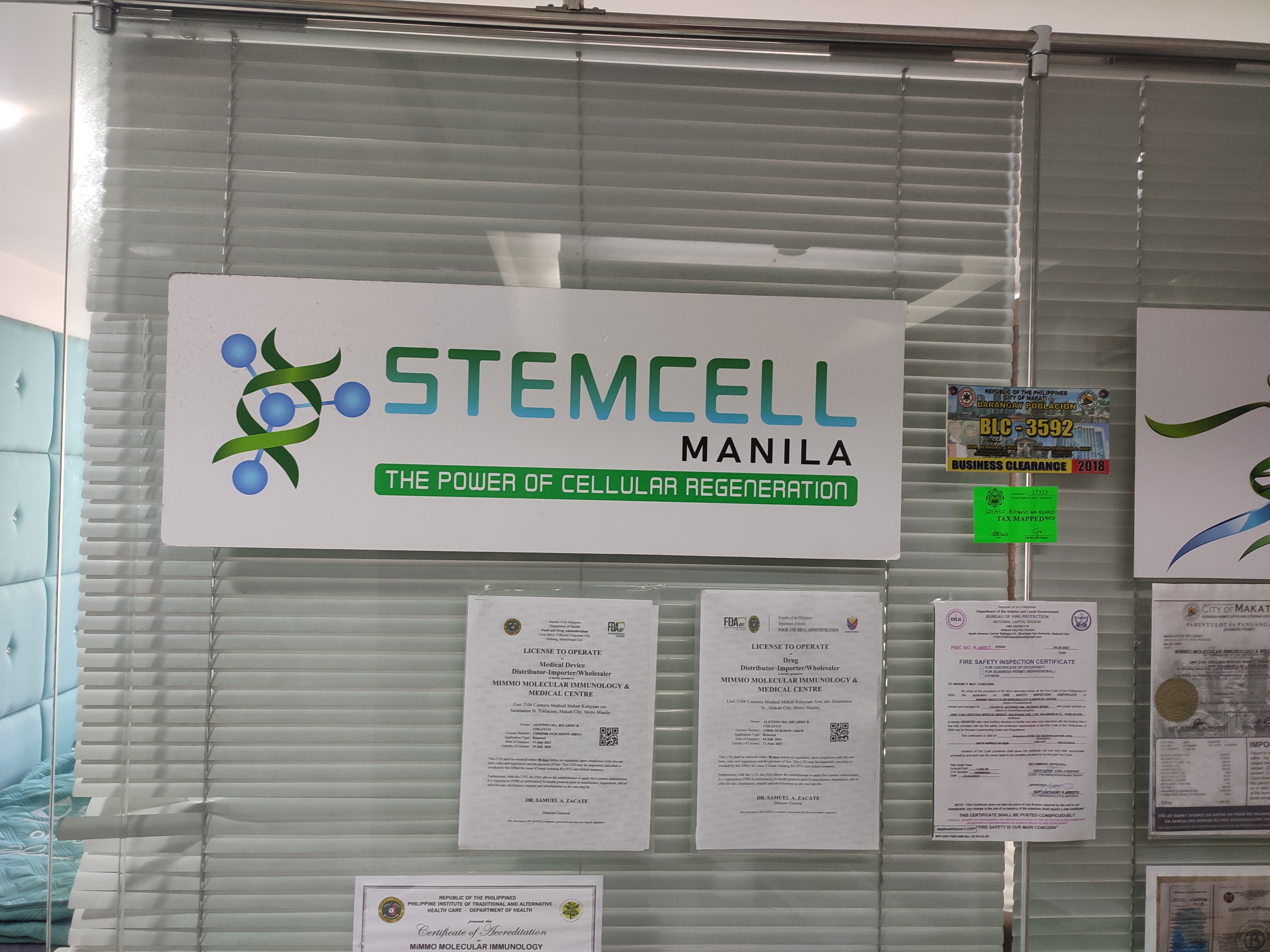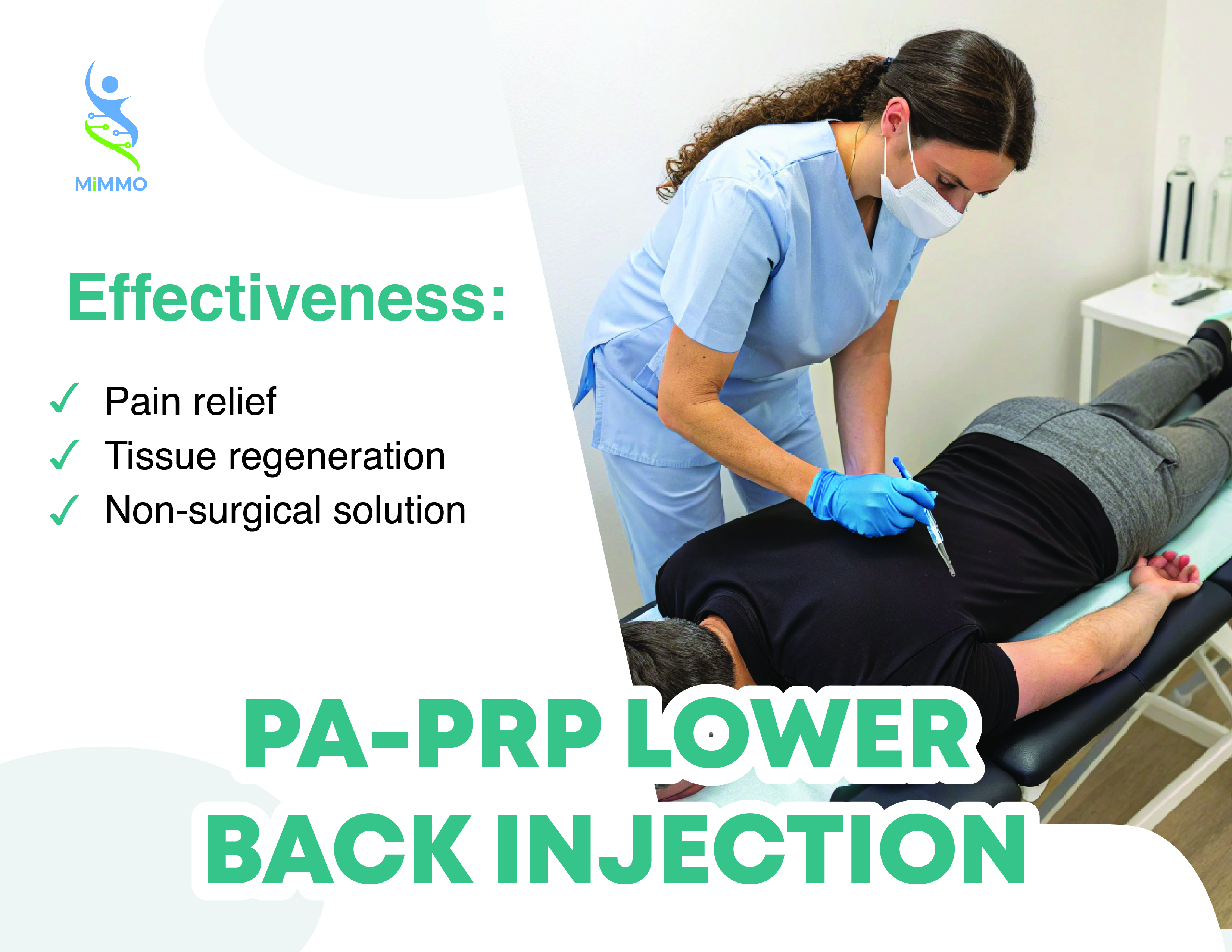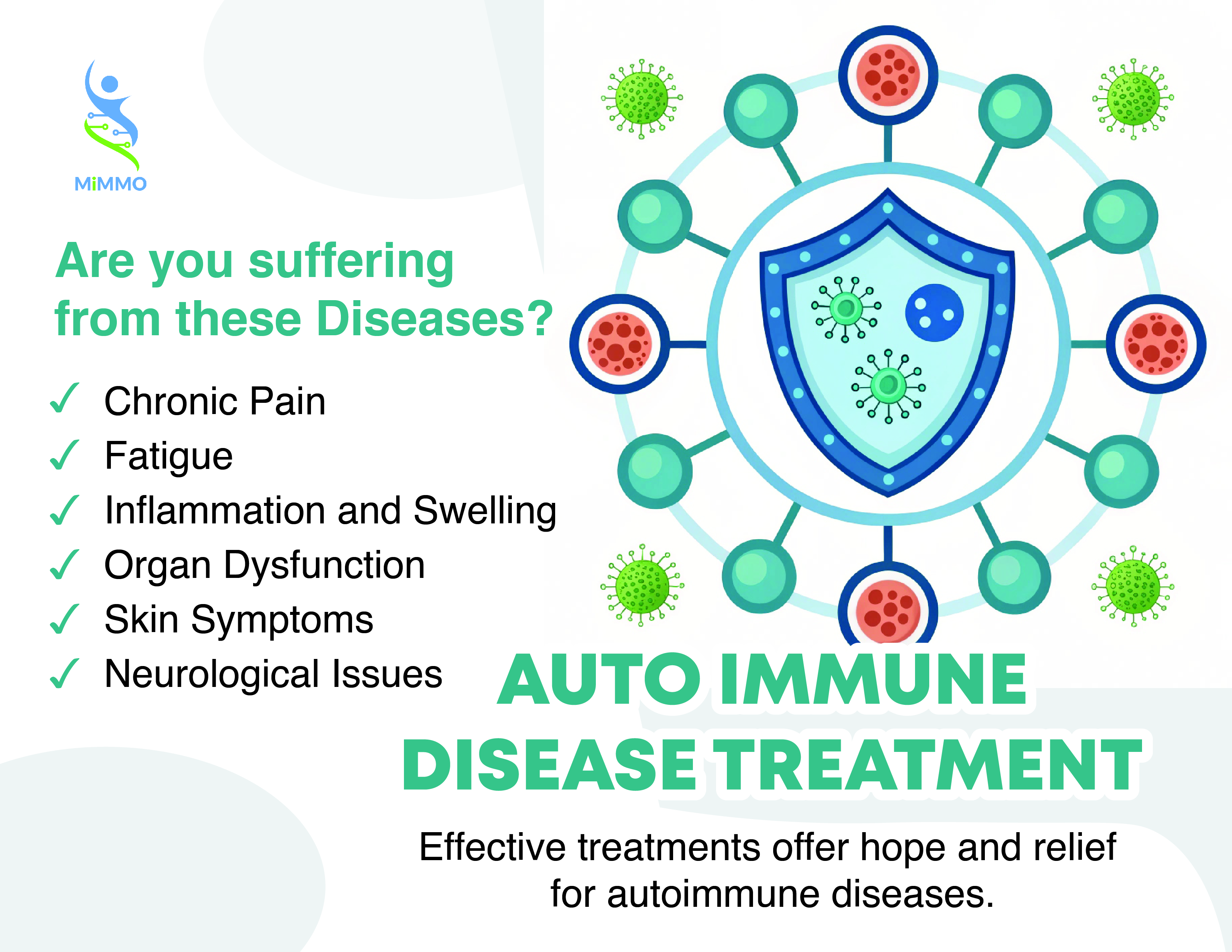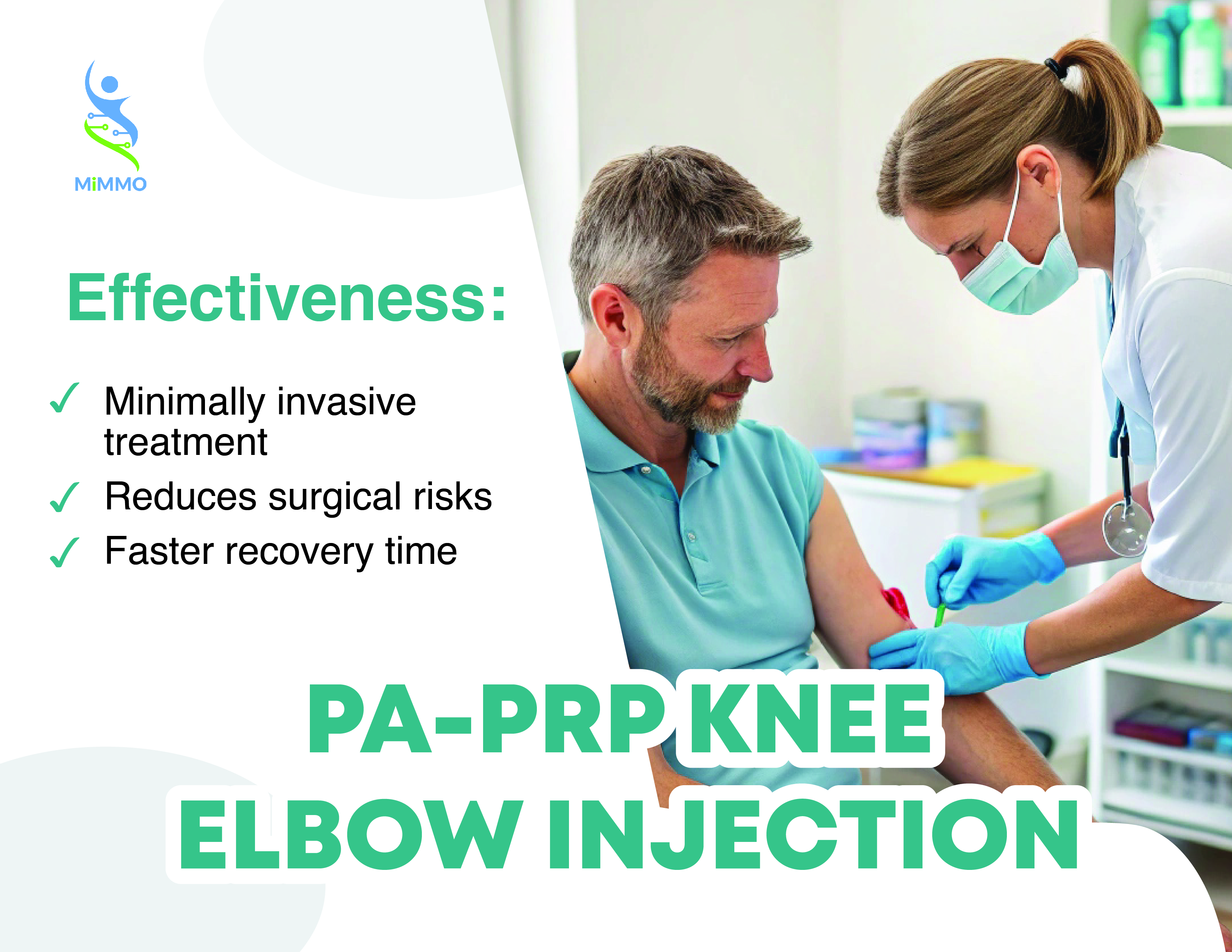At MiMMO, we focus on patient empowerment and education regarding stem cell therapy, highlighting its proper applications, advantages, and limitations. We provide consultations to address misunderstandings and guide patients toward safe, scientifically supported stem cell treatment.
MiMMO emphasizes a transparent, science-driven approach to deliver reliable, transformative care and protect our patients from misinformation and unreliable products.
What is Autologous Stem Cell Treatment
Autologous stem cells are derived from a person’s body, typically from fat tissue or blood. This method is considered the safest form of stem cell therapy because the cells originate from the patient, eliminating the risk of immune rejection since they are not recognized as foreign.
The process involves harvesting these cells, preparing them for use, and then reintroducing them into the same individual to aid in healing, regeneration, or repairing damaged tissues and organs.
Unlike stem cells obtained from animals or donors, autologous stem cells significantly reduce the likelihood of severe allergic reactions, such as anaphylaxis, due to their natural compatibility with the patient’s body.
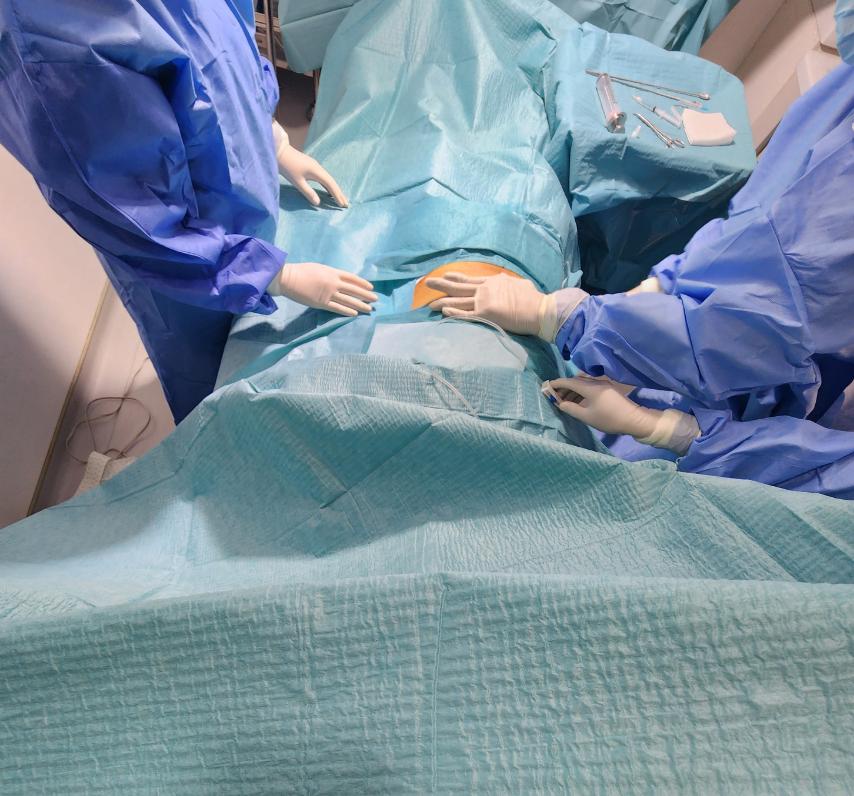
How Stem Cell Therapy Works?
Stem cell therapy harnesses stem cells’ remarkable capabilities to repair, replace, and regenerate damaged tissues. These unique cells cannot only directly replace damaged tissues but can also differentiate into specific cell types as the body requires. They play a crucial role in healing by releasing bioactive compounds that aid in the formation of new blood vessels, reduce inflammation, and promote tissue repair.
In addition to these functions, stem cells send signals that stimulate the body’s cells to participate in the healing process. They help regulate the immune response, preventing excessive inflammation that could otherwise harm healthy tissue. Furthermore, stem cells release exosomes and extracellular vesicles—tiny packages filled with proteins and genetic material—that enhance cell survival and repair mechanisms.
Overall, stem cell therapy’s multifaceted effects make it a powerful approach in regenerative medicine, offering promising solutions for a range of health conditions.
Who Requires or Benefits From Stem Cell Therapy?
Stem cell therapy is opening up exciting new possibilities for individuals facing metabolic disorders, diabetes, hypertension, and a variety of degenerative diseases! This innovative approach not only supports tissue repair but also addresses cellular dysfunctions, paving the way for a healthier future.
Stem Cell for Metabolic Disorders
Stem Cell Treatment for Diabetes
Stem Cell Treatment for Hypertension
Stem Cell Therapy for Degenerative Diseases
Stem Cell Treatment Clinic in Metro Manila
At Mimmo Clinic, we’re redefining the stem cell treatment experience with a unique, holistic approach that keeps your safety and recovery at the forefront!
While many clinics may focus only on the extraction and re-infusion of stem cells, we go above and beyond with our comprehensive three-phase program.
It starts with thorough initial assessments to tailor your care, followed by targeted post-therapy support and continuous monitoring to ensure you’re thriving. Our innovative therapies, including hydrogen therapy, magma therapy, and specialized nutrient drips, work with stem cell treatments to supercharge your healing.
By fostering a personalized, nurturing environment, we enhance your well-being and empower you on your journey to vitality. At Mimmo Clinic, we’re proud to be a leader in cutting-edge stem cell therapy!
Making a Well-Informed Decision in Stem Cell Therapy
Stem cell therapy has transformative potential, but it must be approached with a clear awareness of its benefits and limitations. Selecting a trustworthy facility and using autologous human stem cells greatly lowers risks and guarantees the highest level of safety, even though no medical professional can guarantee a 100% positive result.
At MiMMO, patient health is our priority and we are dedicated to providing genuine, scientifically supported stem cell therapy. Our commitment to openness, moral behavior, and meticulous treatment guarantees that our patients get the safest, most dependable stem cell therapy in the Philippines.
MiMMO Molecular Immunology and Medical Centre prioritizes patient safety, openness, and personalized care. We assist patients thinking about stem cell therapy in the following ways:
Consultations with Skilled Professionals: Our group of skilled physicians offers comprehensive consultations to go over each patient’s particular requirements, medical background, and desired course of treatment. Based on scientific evidence and the circumstances of each patient, we provide an honest assessment of what stem cell therapy can and cannot do, establishing reasonable expectations.
Evidence-Based Recommendations: To guarantee compatibility and reduce hazards, we only employ autologous stem cells that are generated from the patient’s own body. Each treatment is administered by certified specialists who follow strict safety guidelines in a regulated clinical setting.
Post-Treatment Care and Monitoring: Stem cell therapy is a journey, and after the procedure, patient care continues. We keep a careful eye on each patient’s development to determine how their body is reacting to the therapy and to offer extra advice on preserving health and optimizing outcomes.
Conditions Treated with Stem Cell Therapy
Diabetes: Stimulates insulin production and reduces inflammation in the pancreas to help control blood glucose levels.
Hypertension: Supports vascular repair, reduces arterial stiffness, and helps regulate blood pressure.
Asthma: Modulates the immune response and decreases airway inflammation, helping to improve symptoms and lung function.
Skin Diseases: Treats psoriasis, eczema, and chronic wounds by promoting skin cell regeneration and reducing inflammation.
Orthopedic Conditions: Alleviates pain and promotes healing for arthritis, ligament injuries, cartilage damage, and other joint issues.
Degenerative Diseases: Supports tissue repair and reduces inflammation in neurodegenerative diseases (like Parkinson’s and Alzheimer’s) and chronic kidney disease.
Vision Impairment: Helps regenerate retinal cells and improve eye health in conditions like age-related macular degeneration and blurry vision.
Autoimmune Diseases: Reduces immune system overactivity in conditions like rheumatoid arthritis and lupus, helping to protect healthy tissue.
This approach enables targeted treatment by tapping into the body’s natural regenerative abilities to improve health across various conditions.
Stem cells will home in on areas where there is inflammation (signaling pain or injury) –and they will repair/regenerate:
1. Skin
2. Lung
3. Blood Pressure
4. Bladder Function
5. Kidney Function
6. Hair
7. Sexual Performance/Function
8. Liver
9. Increased General Energy.
Possible Treatment for:
| Alzheimer’s | MD / MS / HC | Lung Disorders |
| Diabetes Type 2 | Heart Disease | Chronic Hepatitis |
| Parkinson’s | Osteoarthritis | Memory Loss |
| SLE | CFS / Fibromyalgia | Colitis, IBS, Crohn’s |
| Kidney Disease | Sport Injury Rotator Cuff | Chronic Migraine |
| Liver Disease | Joint Recon for Hips and Knees | Neuropathy |
| Stroke / HTN | Allergy / Sinusitis | Autism, CP, Ataxia |
| Heart Conditions | Sex Dysfunction | Acne, eczema |
| COPD | Prostate Disorders | Herniated Disks |
| ALS | Heartburn, Gastritis, GERD | Emphysema / IPF |
| Spinal Cord Injury | Osteoporosis | Anti-aging |
Autologous Stem Cell Therapy: Healing With Your Own Cells
Autologous stem cells are derived from a person’s body, typically from fat tissue or blood. This method is considered the safest form of stem cell therapy because the cells originate from the patient, eliminating the risk of immune rejection since they are not recognized as foreign.
The process involves harvesting these cells, preparing them for use, and then reintroducing them into the same individual to aid in healing, regeneration, or repairing damaged tissues and organs.
Unlike stem cells obtained from animals or donors, autologous stem cells significantly reduce the likelihood of severe allergic reactions, such as anaphylaxis, due to their natural compatibility with the patient’s body.
Autologous Stem Cell Procedure Overview
This structured program maximizes the benefits of autologous stem cell therapy by enhancing the body’s intrinsic healing capabilities with targeted supportive therapies, promoting long-term health and vitality.
Preparing For A Stem Cell Procedure
Comprehensive Testing & Initial Assessment
Detailed patient history and baseline assessments.
Bloodwork, imaging, and necessary tests to ensure safety and effectiveness of therapy.
Stem Cell Procedure
Stem Cell Extraction and Same-Day Re-infusion
Extraction of stem cells (typically from adipose tissue or blood).
Processing and concentration of stem cells.
Re-infusion of autologous stem cells.
Goal: Initiate the cellular repair and rejuvenation process.
Stem Cell Post Therapy Support (For Three Months)
Weekly Support Therapies
Patients will receive supportive therapies designed to enhance stem cell efficacy, improve mitochondrial function, and optimize cellular recovery each week.
1. Hydrogen Therapy
Inhalation of molecular hydrogen to combat oxidative stress and reduce inflammation.
Frequency: 1 session per week.
Benefits: Supports stem cell function by minimizing oxidative damage and promoting an anti-inflammatory environment.
2. Magma Therapy
Application of far-infrared or heat-based therapy to stimulate circulation and cellular metabolism.
Frequency: 1 session per week.
Benefits: Enhances blood flow and supports mitochondrial function, optimizing nutrient and oxygen delivery to cells.
3. Mitochondrial Nutrient Drip and Oral Therapy
IV infusion of targeted nutrients that support mitochondrial energy production (e.g., ALA, Vitamin B1, Vitamin C).
Frequency: 1 session per week.
Oral nutrients: Different oral nutrients depending on the patient’s needs. (e.g., Amino Acids, Magnesium, Vitamin D3 & K2)
Benefits: Strengthens mitochondrial function, enabling cells to utilize the reintroduced stem cells more efficiently for repair and regeneration.
Monitoring and Recovery After Stem Cell Procedure
Monthly Check-ins
• Assessment of patient progress, review of any symptomatic improvements, and adjustments as needed.
• Blood tests and other relevant diagnostics to track patient’s cellular health and response to therapies.
• Comprehensive follow-up and final assessment.
• Recommendations for any additional or ongoing therapies based on individual response.
Human Autologous Stem Cell Treatment: Expected Outcomes
Human autologous stem cells, or cells taken from the patient’s own body, are the best option in terms of safety and efficacy. This kind of stem cell therapy is the recommended strategy in regenerative medicine since it reduces risk and enhances compatibility.
Minimal Rejection Risk: Autologous stem cells are derived from the patient’s own body; therefore, there is less chance that the immune system will reject them or react negatively. Because of this, autologous stem cells are safer than those from other sources, and the likelihood of problems is significantly reduced.
No Risk of Zoonotic Disease: There is a chance that using stem cells originating from animals, such as sheep or deer, could result in the spread of zoonotic diseases, which are illnesses that are contracted from animals and infect humans. Since autologous stem cells are derived from the patient’s own body and are therefore risk-free, this issue is entirely resolved.
Avoids Foreign Substances and Chemicals: Many over-the-counter “stem cell” products, such as capsules and oral supplements, make false claims while including useless or unproven substances. Since actual stem cells cannot survive in supplement or pill form, these so-called stem cells are not viable. In contrast to a deceptive, unregulated product, using autologous stem cells in a therapeutic context guarantees that you are getting a genuine, controlled therapy.
Expected Outcomes After Stem Cell Procedure:
• Enhanced cellular repair and rejuvenation.
• Reduced oxidative stress and inflammation.
• Improved energy levels and vitality.
• Strengthened immune response and mitochondrial health.
To further support program efficacy, patients are advised to follow a complementary lifestyle program that includes a balanced diet, regular exercise, and hydration.
Understanding The Risks Associated With Stem Cell Treatment
Stem cell therapy is an effective, cutting-edge treatment that provides regenerative advantages for a wide range of chronic and degenerative illnesses. However, there are risk factors associated with stem cell treatment, just like with any medical operation, so it’s important to approach it with reasonable expectations. Despite the enormous promise of stem cell therapy, no physician or other qualified healthcare provider can guarantee 100% success for any given ailment. It is important to understand the possible dangers, why results differ, and why using human autologous stem cells is the safest course of action.
Stem Cell Therapy: Effectiveness and Limitations
Stem cell therapy is an advanced science-based treatment, but it is not a miracle cure. Utilizing the body’s natural capacity for regeneration, the therapy promotes cell renewal and tissue repair. However, each patient responds differently to stem cell therapy. The body’s reaction to stem cell therapy depends on a number of variables, such as age, general health, lifestyle, and the ailment being treated.
No 100% Guarantee: It’s crucial to understand that no reputable medical professional or qualified physician can promise that stem cell therapy will improve your disease in a certain way. Effectiveness varies according to each person’s biological reaction. Some patients may see moderate or negligible changes, while others may realize notable improvements. Every stem cell procedure has an element of probability, as the body’s response to regenerative therapy cannot be precisely predicted.
Individual Body Response: Stem cell therapy is dependent on how each person’s body responds to the treatment. The success of the therapy is influenced by a number of factors, including the state of the existing tissues, cellular compatibility, and immune response. Trustworthy clinics place a strong emphasis on individualized care and open communication because a treatment that works effectively for one patient might not work the same way for another.
Stem Cell Specialists in Metro Manila
MiMMO Molecular Immunology and Medical Centre provides stem cell treatments utilizing solely human-derived cells, ensuring patient safety and efficacy. Our treatments are administered by qualified specialists in a regulated clinical setting, ensuring our patients receive trustworthy, research-based stem cell care.
When administered properly, stem cell therapy has proven to be a very safe and effective treatment option in the Philippines. It represents a significant advancement in the Philippines’s medical care, offering hope and healing for various conditions. MiMMO is dedicated to providing the best regenerative medicine standards, practical solutions, and a new definition of healthcare quality for the Filipino people.
